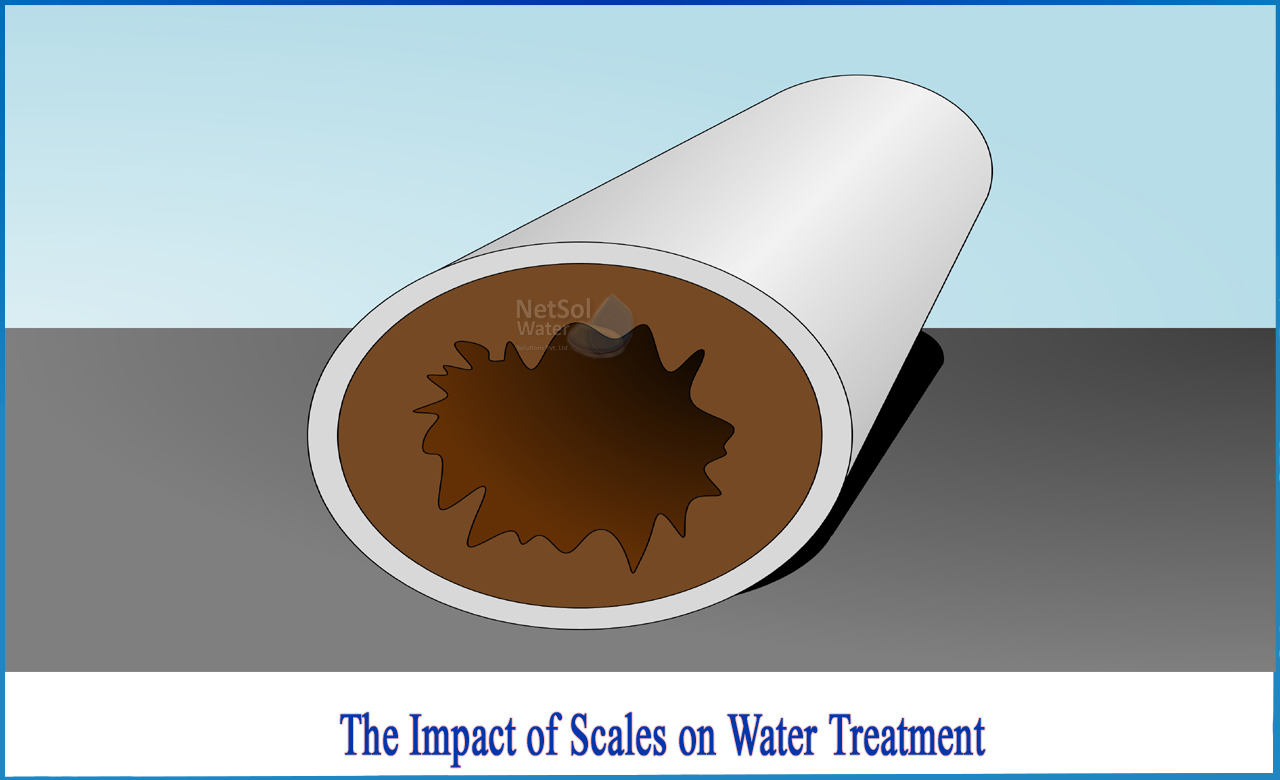What is scale and how does it impact water treatment?
Hard water has been creating nuisance since ages, whether making it hard for us to do dishes or laundry, degrading our appliances and shortening their life span. Scales are typically the mineral deposits of calcium and magnesium that have precipitated out of water. These can create havoc in heating ventilation air conditioning systems which eventually increases the energy usage, maintenance and operational costs.
The process of scale formation depends upon the solubility of calcium carbonate and its dependency on temperature. It is noted that as soon as the temperature elevates, calcium carbonates solubility in water decreases and eventually scales are formed. It is due to this scale formation usually occurs in boilers and those places which are hotter than the rest like utensils used for cooking, water heaters and other microwave appliances. Due to the scale formation, the heating efficacy gets degraded. This leads to inefficient energy usage.
IMPACT OVER WATER TREATMENT
Scales can be mitigated by pretreatment and chemical additions.
1-Pretreatment
Softening technique has been used since ages for preliminary treatment of hard water in order to mitigate scale formation. These contain ion exchange resin bed which helps in replacing ions which cause scales in appliances and plumbing system. Once all the sodium from the resin beds has been removed, the softener enters the regeneration mode where in the brine water is flushed over the resin beds and sodium ions are gained back. Softeners can use different processes based on the quality of demanded water like demineralization, ion exchange and distillers. It should be noted that ion exchange process proves to be the best in softening water.
2-Chemical additions
The overall goal of chemical additions is entirely different as it prohibits scale formation on coolest surfaces. This process is completed as follows:
· THRESHOLD INHIBITORS: These inhibit the mineral deposits whereas the ions are in large quantity but still ions stay in the solution.
· CRYSTAL GROWTH MODIFICATION POLYMERS: These help in reshaping the mineral making it hard for them to deposit. Minerals in this solution are least stable.
· DISPERSANTS:These chemicals are used in order to change the attractive force between the minerals which form scales.
Scale control is an important part in effective water treatment system. As discussed above ion exchange resin beds can remove hardness from water while all the chemical additions can increase the capacity for hardness by enabling large quantity of ions in the solution and reduces its adherent properties by sudden decrease in their attractive forces. This allows higher cycles of concentration and thus scale eradication is achieved. Scale deposition methods must be employed such that systems can run longer and use lesser energy while minimizing the cost.
Scale control is also environment friendly and economically viable since the process helps us to employ lesser energy to run our system which eventually reduces the carbon footprint and saves costs for the latter reason.
In conclusion, as scale deposits can be steadily raising fuel and maintenance costs.
NETSOL’s advocates can help you evaluate opportunities to maximize the life span, efficiency and reliability of water systems.
To learn more, kindly contact NETSOL WATER.
Netsol Water is Greater Noida-based leading water & wastewater treatment plant manufacturer. We are industry's most demanding company based on client review and work quality. We are known as best commercial RO plant manufacturers, industrial RO plant manufacturer, sewage treatment plant manufacturer, Water Softener Plant Manufacturers and effluent treatment plant manufacturers. Apart from this 24x7 customer support is our USP. Call on +91-9650608473, or write us at enquiry@netsolwater.com for any support, inquiry or product-purchase related query.



